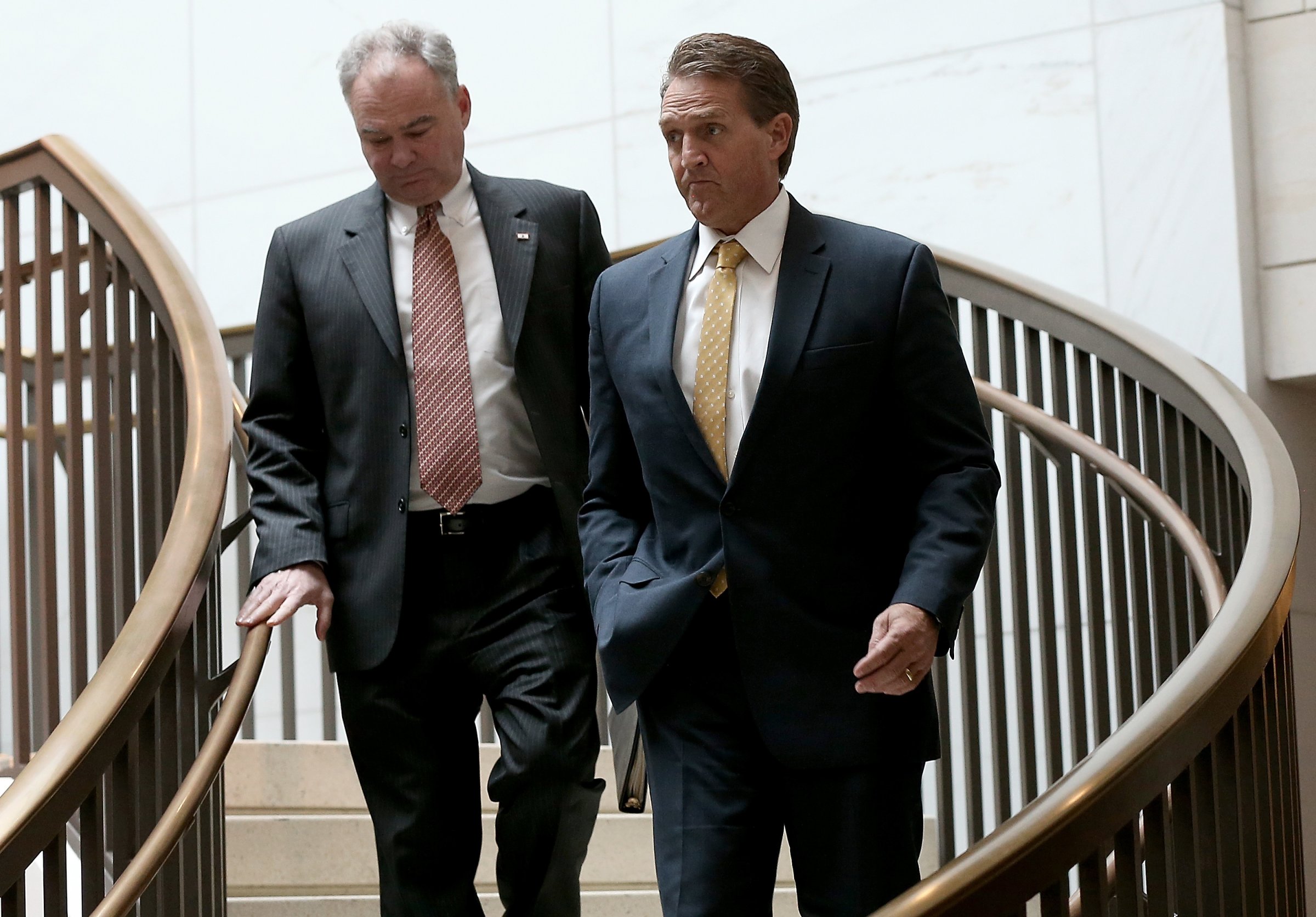
In the aftermath of the horrible Friday the 13th attacks in Paris, many members of Congress quickly took the opportunity to blast the Obama administration’s failure to appropriately counter ISIS in Iraq, Syria and beyond. It is fair game to challenge the administration’s strategy, but these critiques miss an important point: Congress has abdicated its fundamental duty to debate, vote on and shape the extent of the current war on ISIS. Our post-Paris discussion about what more the U.S. should do must include Congress taking responsibility for our involvement, rather than trying to duck accountability.
The founders of our country crafted a constitution with a revolutionary idea about war. James Madison knew that war had been fundamentally a matter for the executive—king, sultan, emir, emperor, monarch—throughout human history. He determined that our nation would take the decision to initiate war away from the executive and instead vest it in the people’s elected legislative branch. Absent an imminent attack on America, its people, or its national security interests, when the President as Commander-in-Chief can always act unilaterally to defend the country, we are not supposed to be at war without a vote of Congress.
President Obama launched an airstrike campaign against ISIS on Aug. 8, 2014. In nearly 16 months of war, four American civilian hostages and 10 service members have been killed. Nearly 3,600 of our troops are deployed in the anti-ISIS mission today. We’ve spent $5 billion and flown over 6200 airstrikes. And the ISIS threat has mutated beyond Iraq and Syria—with obvious presence now in Libya, Somalia, Yemen, Afghanistan and other nations. The attacks in Paris, with hundreds of innocent people killed and injured, occurred within days of ISIS claiming credit for a suicide bombing in Lebanon and the downing of a Russian passenger airliner in Egypt. And this week brings renewed threats of attacks on other cities, including Washington. ISIS is not going away.
But Congress has been strangely silent about the war. We criticize the President, but won’t vote to authorize, stop or refine what he is doing. Congressional silence sends a message. Our allies wonder whether we have the resolve to work with them to stop this threat. ISIS must take comfort in the seeming ambivalence of Congress. Most damning, our troops—ordered to risk their lives thousands of miles from home—wonder whether Congress even supports the dangerous missions they must carry out every day.
We introduced a bill in June to spark a debate and get Congress to declare that ISIS is a sufficient threat to warrant American military action. We wanted to show that there could be bipartisan agreement on this point. A recent letter of 35 House members—Democrat and Republican alike—to Speaker Paul Ryan urges that Congress work together to put our imprimatur on using American military force against ISIS.
There are important questions to resolve going forward, especially the role—if any—of U.S. ground forces. Questions about whether to “sunset” an ISIS-specific AUMF and what to do about the 14-year-old statute which currently serves as the administration’s legal underpinning for action against ISIS, remain. None of them have easy answers, but we were not elected to the U.S. Senate to take votes on what’s easy and avoid votes on issues that are hard. It is our responsibility to weigh in on this grave matter of foreign policy.
A Congressional debate, at long last, about this war on ISIS will educate the American public about the stakes involved. It will force the administration to give thought to, and lay out a clear strategy that encompasses military and non-military dimensions—including diplomatic and humanitarian measures—for degrading and ultimately destroying ISIS, and for U.S. involvement with other nations in this struggle. It should let our troops, our allies and our adversaries know of our unity and resolve. Finally, it will vindicate the Constitutional role of Congress in making the sober decision about when military force is necessary.
More Must-Reads From TIME
- The 100 Most Influential People of 2024
- The Revolution of Yulia Navalnaya
- 6 Compliments That Land Every Time
- What's the Deal With the Bitcoin Halving?
- If You're Dating Right Now , You're Brave: Column
- The AI That Could Heal a Divided Internet
- Fallout Is a Brilliant Model for the Future of Video Game Adaptations
- Want Weekly Recs on What to Watch, Read, and More? Sign Up for Worth Your Time
Contact us at letters@time.com